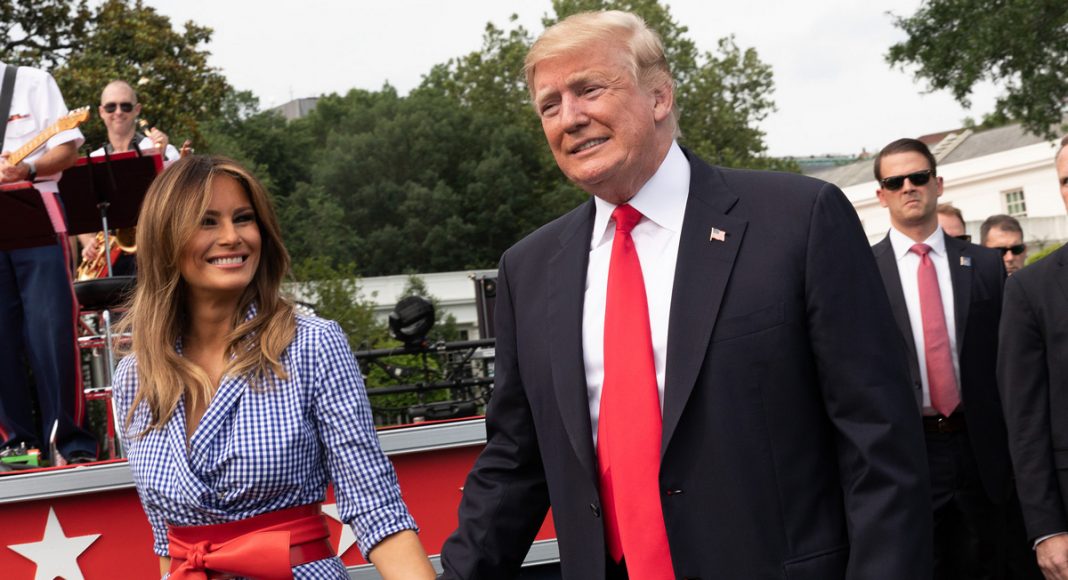I’ve been asked several times recently what would happen to cannabis reform if President Donald Trump were to leave office—either by resignation or removal. For industry and for the advocacy community, it is a critical question, as President Trump—at least rhetorically—has been the most pro-cannabis reform-minded president in history.
First, let’s be clear. The likelihood of the president resigning or being removed is extraordinarily low. The president’s pride and self-conviction that he has done nothing wrong vis-à-vis the current investigations his administration and campaign face are clear. What’s more, the president’s historically high popularity among Republican voters means that it would take a cataclysmic event or discovery of information for a sufficient number of Republican senators—currently 18—to join all 49 Democrats (assuming they vote in unison) to vote to remove Mr. Trump—if the House impeached.
But what would happen if the unthinkable happened?
The elevation of Vice President Mike Pence to the presidency would likely be a dark day for cannabis policy. Mr. Pence is an avowed social conservative who has shown himself to be no friend to the cannabis movement. When given the chance as a congressman, Mike Pence voted against legislative measures that sought to prevent the Justice Department from spending funds to enforce against state-legal medical marijuana programs in 2005 and 2007. And in an Indiana Governor’s debate in 2012, Pence opposed cannabis decriminalization, noting “I would not support the decriminalization of marijuana. To be candid with you growing up in the Hoosier state, I’ve seen too many people become involved with marijuana and have their lives sidetracked as a result or to see marijuana become a gateway drug to even worse addictions on their part…Decriminalization is not the right path.”
-
Related Story: Trump: ‘I Probably Will End Up Supporting’ STATES Act
The very opponents in the Trump administration—appointees like former Health and Human Services Secretary Tom Price and Attorney General Jeff Sessions—are the same social conservatives with whom Mr. Pence is most aligned ideologically. Moreover, Mr. Pence’s core ideology—religious and social conservatism—finds its greatest support among older, white, conservative Republicans, a demographic group least supportive of cannabis reform. The irony, of course, is that a President Pence’s political viability at the national level would depend on his ability to grow his base. He would need to appeal to conservatives of the non-social stripe and moderates, a feat at which Mr. Trump has excelled. However, Mr. Pence has spent a career appealing to that core group as a congressman and governor. His transformation on the cannabis issue may be beyond his reach and if he attempted it, it may not seem legitimate or believable, given his record.
Yet, despite this reality, little would change in terms of substantive policy under a Pence administration. While President Trump’s words have been supportive of cannabis reform, his administration’s only actions—save the technical, apolitical FDA approval of Epidiolex—have been anti-reform. One would imagine a Democratic House of Representatives working with a closely divided Republican Senate to deliver cannabis reform legislation to the president’s desk.
Such legislation would likely face a different face in Mr. Trump’s Oval Office than in Mr. Pence’s. But beyond this hypothetical, little actionable difference is evident.
However, depending on who the Republican president is in 2020 will matter much in the next presidential race. President Trump can largely disarm the Democratic nominee on the issue, arguing that he has a similar position to Democrats and that Congress hasn’t given him legislation to sign, but that he would, given the opportunity. (Although Democrats could still attack the president for the rescission of the Cole Memo, regardless of its policy impact or lack thereof.)
RELATED: Which One Of These 6 States Will Legalize Marijuana Next?
President Pence would be different. A Democratic nominee could have a very public debate with Mr. Pence over the issue, using it as a springboard to discuss the man related issues such as states’ rights, medical efficacy, economic growth, job opportunities, trade, criminal justice, etc. Any 2020 Democratic presidential nominee would chomp at the bit to debate Mr. Pence about cannabis legalization—an issue about two-thirds of Americans support—to paint him as out of touch. Such a fight would elevate and mainstream the cannabis policy debate in a way a contest with President Trump may not.
Ultimately, the extremely unlikely event of a pre-2020 Pence presidency may have little effect on policy, even if it means replacing a cannabis reform supporter with an opponent. Yet, come 2020, the presidential race will either be between two cannabis supporters or be one that elevates the cannabis conversation.
John Hudak is a Senior Fellow at the Brookings Institution and Senior Advisor at Freedman & Koski, Inc. He is the author of the 2016 book Marijuana: A Short History.


